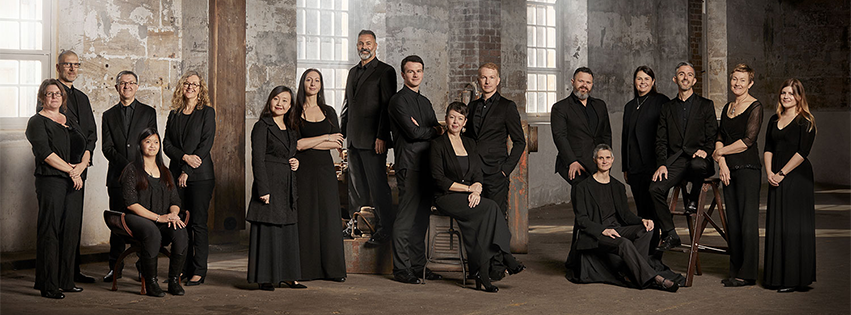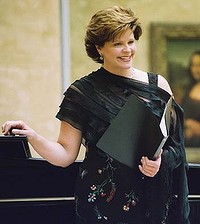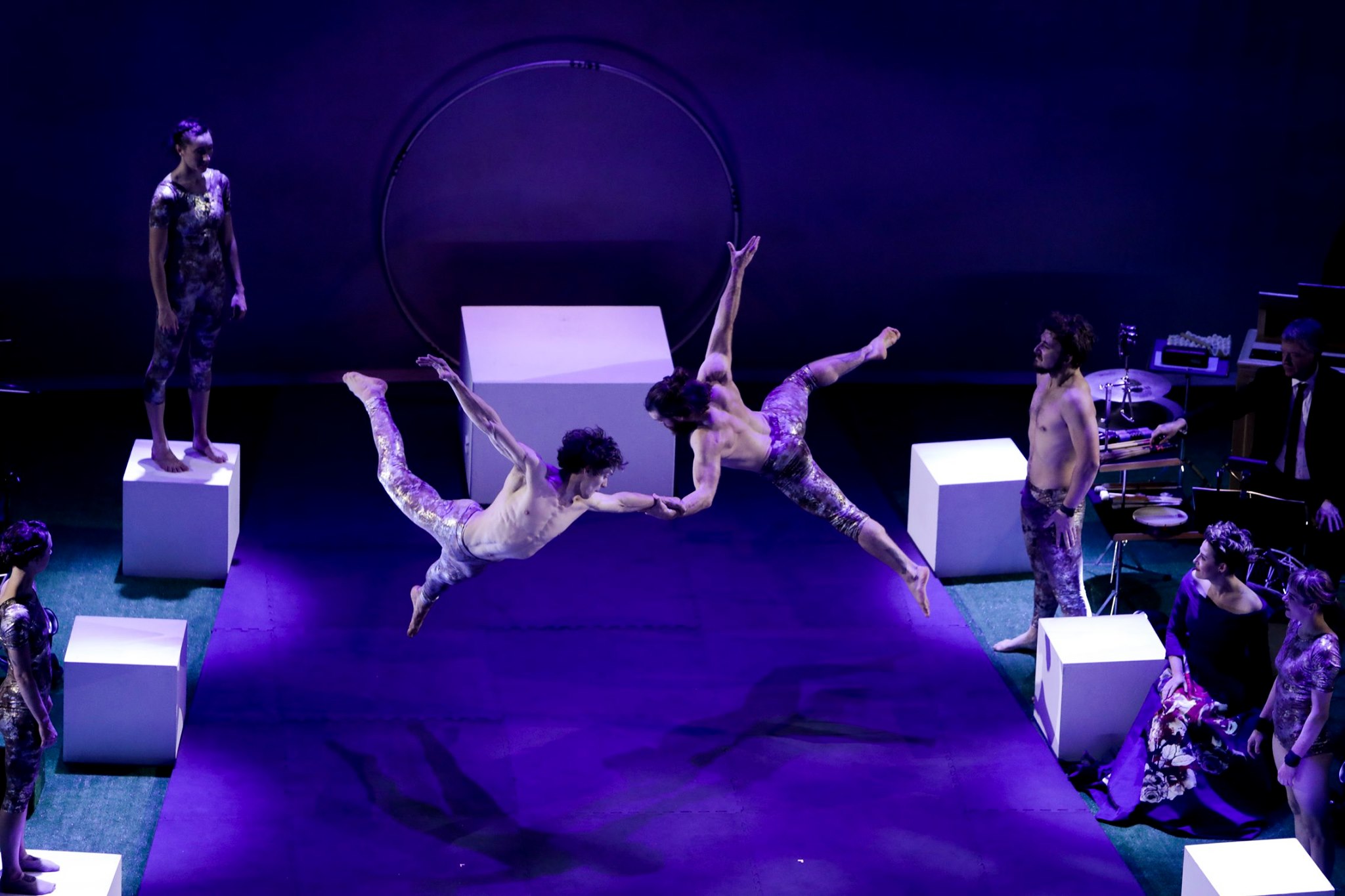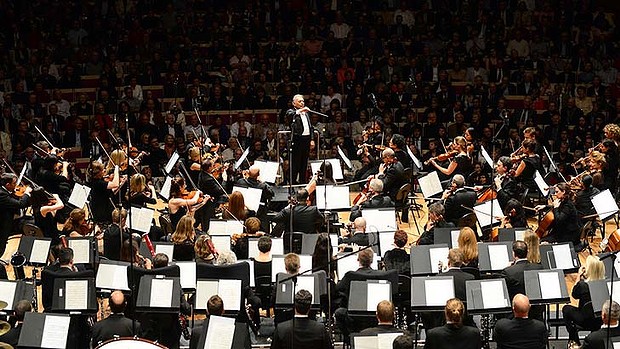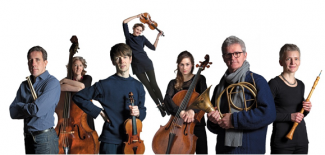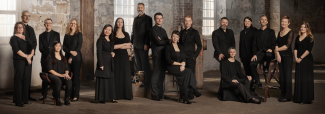Concert Review: Music On Music/ Sydney Chamber Choir
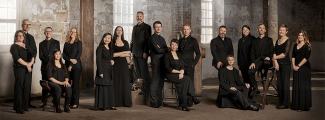
Music on Music
Sydney Chamber Choir
Great Hall, The University of Sydney
Saturday 30 March 2019 7.30pm
Written by Victoria Watson
Sydney Chamber Choir was formed in the 1970s by students of Sydney University. In the decades since, it has evolved into a fine, tightly knit ensemble of musicians, dedicated to presenting choral works that celebrate the voice, great choral composition and the flowering of the mind through language.
With the sad loss of their director Richard Gill AO in 2018, they have looked to a young man steeped in both Australian and English choral traditions to take the reins and steer them wisely and creatively into the future. Sam Allchurch grew up singing with Gondwana voices (Sydney Children’s Choir), was mentored by Lyn Williams and went on to Cambridge University as a choral scholar supported by the Gates Foundation. For his debut concert conducting this fine ensemble Allchurch drew on the ensemble’s own history, honouring past conductors through his widely contrasting programme choices, and binding the whole together cleverly with a theme of songs about singing – Music on music.
Framing this overarching concept were two major works – J.S. Bach’s joyous motet Singet dem Herrn (Sing to God a new song c.1726) and Benjamin Britten’s whimsical and inspired setting of Christopher Smart’s eccentric poem written while interred in an asylum, Rejoice in the Lamb (1943). Concluding each half of the programme, these longer works by masters of choral composition showcased the technical mastery of the ensemble, with rapid fire melismas and polyphony cascading back and forth between two choirs, celebrating the sheer exuberance of singing Bach’s magnificent motet. The featured solo quartet sang with balance and presence, and soprano Josie Ryan’s bell-like tone was delightful. Britten’s work allowed also for some highly expressive poetic delivery, notably from soloists Belinda Montgomery and Natalie Shea, who relished the playful text with excellent diction and character. Natalie Shea must also be highly commended for her superb programme notes.
Throughout the concert, a capella works alternated with others accompanied by the grand organ of the Great Hall expertly played by another fine emerging musician Joshua Ryan. He played with both sensitivity and grandeur as required and never overshadowed the choir.
In American 20th century composer Eliot Carter’s setting of Emily Dickinson (1945), Musicians Wrestle Everywhere conductor Sam Allchurch paid tribute to the great legacy of his predecessor Richard Gill, his constantly enquiring mind and huge legacy in music education. The poem begins – Musicians wrestle everywhere: all day among the crowded air, I hear the silver strife. The playful musical setting would have tickled Richard Gill’s humour and was a fitting dedication to his memory.
Of the number of other smaller works presented, two stood out as showing the versatility of the choir and their zeal to celebrate the past and embrace the present day. Their seamless delivery of Palestrina’s intricate counterpoint in the single Kyrie movement from Missa Ut re mi fa so la (1561–62) in mixed formation lining the front and side walls of the imposing Great Hall was breathtakingly beautiful and the purity of the voices suited perfectly, the Renaissance textures and aesthetic.
Standing proudly as the highlight of this programme was a deeply impressive work by young Australian composer Joseph Twist (2011) How Shall We Sing In A Strange Land? This was the jewel in the crown of a rich and varied programme that spanned five centuries. Taking the same Latin text as the previous setting by William Byrd of Psalm 137 – Quomodo cantabimus canticum domini in terra aliena? (How can we sing the Lord’s song in a foreign land?) Twist juxtaposes a poem from My People by Oodgeroo of the tribe Noonuccal (1920-1993). The first verse captures the profound hopes of Oodgeroo for reconciliation and freedom from the oppression of the past.
Look up, my people, The dawn is breaking, The world is waking To a new bright day, When none defame us, No restriction tame us, Nor colour shame us, Nor sneer dismay.
In his own words, Twist’s setting of these two texts explores the “dissonance and paradox…of the post-Colonial Australian experience.” A soprano soloist of childlike innocence utters these heartbreaking words and the men take up the Latin text with a vibrant syncopated rhythmic drive repeated as a mesmeric chant. The women lament the darkness of past injustices and the men answer with anger of being “bound and frustrated “. Emerging from the darkness expressed by lustrous cluster chords and muttered swirls of rhetorical questioning comes a glorious optimism, finishing with “To our children’s children a glad tomorrow “ sung unanimously with resonant golden tone. This work has been recorded by the Adelaide Chamber Singers and was truly remarkable, surprising and provocative.
Sydney Chamber Choir enters an exciting new era under the assured guidance of Sam Allchurch and the packed audience for this concert shows there is no shortage of interest in music that is both intellectually challenging and aesthetically ambitious.
Victoria Watson for SoundsLikeSydney©
A graduate of Melbourne university and VCA, Victoria Watson appeared regularly as a soprano with the Victoria State Opera and has toured and served as artistic director of many chamber ensembles.
She has performed with Sydney Symphony Orchestra and for ten years, was artistic director of a major opera education project with Opera Australia. Since 2015 she has moved into directing opera including Mozart’s Cosi Fan Tutte at the Independent theatre.
Victoria has lectured in voice at the major universities in Melbourne, and is currently a tutor at UNSW. Having taught at major Sydney secondary colleges, she now runs a busy private singing studio. She is a published author on opera and a popular freelance music and theatre lecturer and advocate for Australian artists around the world.

